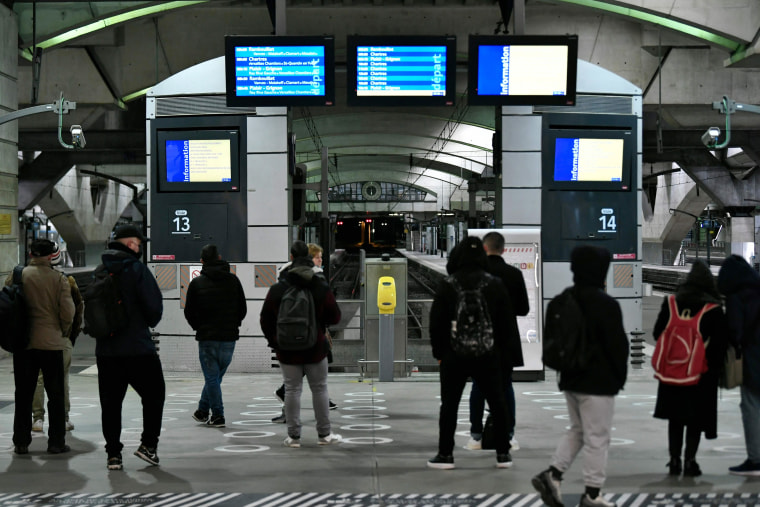Workers in many French cities took to the streets on Thursday to reject proposed pension changes that would raise the retirement age, amid a day of nationwide strikes and protests seen as a major test for Emmanuel Macron and his presidency.
Demonstrations gathered thousands of people in the cities of Paris, Marseille, Toulouse, Nantes, Lyon, and other places as strikes severely disrupted transportation, schools, and other public services across the country.
French workers would have to work longer before receiving a pension under the new rules, with the nominal retirement age rising from 62 to 64. In a country with an aging population and increasing life expectancy where everyone receives a state pension, the Macron government says reform is the only way to keep the system solvent.
The unions argue that the pension reform threatens hard-fought rights and propose a tax on the wealthy or more payroll contributions from employers to finance the pension system. Polls suggest that the majority of French people are also opposed to the reform.
More than 200 rallies are expected across France on Thursday, including a big one in Paris involving France’s main unions.
Laurent Berger, leader of the CFDT union, called the government’s plans an «unfair» reform on BFMTV and called on workers to «take to the streets peacefully to say they don’t agree.»
Police unions opposed to pension reform are also participating, while those on duty are bracing for possible violence if extremist groups join the demonstrations.
Most trains in France are cancelled, including some international connections, according to rail authority SNCF. About 20% of flights leaving Paris’ Orly airport are canceled and airlines warn of delays.
Electricity workers vowed to cut power supply as a form of protest.
The Ministry of National Education said that between 34% and 42% of teachers were on strike, depending on the schools. High school student unions were expected to join the protests.
Thierry Desassis, a retired teacher, called the government’s plan «an aberration.»
“It is at 64 that you begin to have health problems. I am 68 years old and in good health, but I have started seeing doctors more often,” he said.
The strike also affected some monuments. The Palace of Versailles was closed on Thursday, while the Eiffel Tower warned of potential disruptions and the Louvre Museum said some exhibition rooms would remain closed.
Many French workers expressed mixed feelings about the government’s plan, noting the complexity of the pension system.
Selim Draia, 48, an animation artist, said some changes may be needed «but rushing it like this: I think the country is divided and polarized enough to take the time to talk.»
Quentin Coelho, 27, a Red Cross employee, felt he had to work on Thursday despite understanding «most of the strikers’ demands.» With an aging population in the country, he said, raising the retirement age “is not an efficient strategy. If we do it now, the government might decide to increase it more 30 or 50 years from now. We can’t predict.»
Coelho said he doesn’t trust the government and is already saving money for his pension.
Liliane Ferreira Marques, a 40-year-old Brazilian saleswoman from Boussy-Saint-Antoine, south of Paris, said she supports the strikers’ demands but cannot afford to go on strike because she «barely gets paid the minimum wage.»

French Labor Minister Olivier Dussopt acknowledged «concerns» raised by pension plans that will require workers «an additional effort.» He called on the strikers not to block the country’s economy. “The right to strike is a freedom, but we don’t want any blockades,” he said, speaking on LCI television.
Dussopt justified the choice to push back the retirement age because the government rejected other options that involved raising taxes, which he said would hurt the economy and cost jobs, or lower pension amounts.
The French government formally presents the pension bill on Monday and it heads to Parliament next month. Its success will depend in part on the scale and duration of the strikes and protests.
The planned changes state that workers must have worked for at least 43 years to be entitled to the full pension. For those who do not meet that condition, such as many women who interrupted their careers to raise children or who studied for a long time and started working late, the retirement age would remain unchanged at 67.
Those who started work early, under the age of 20, and workers with significant health problems could take early retirement.
The prolonged strikes met Macron’s latest effort to raise the retirement age in 2019. He eventually withdrew it after the Covid-19 pandemic struck.

